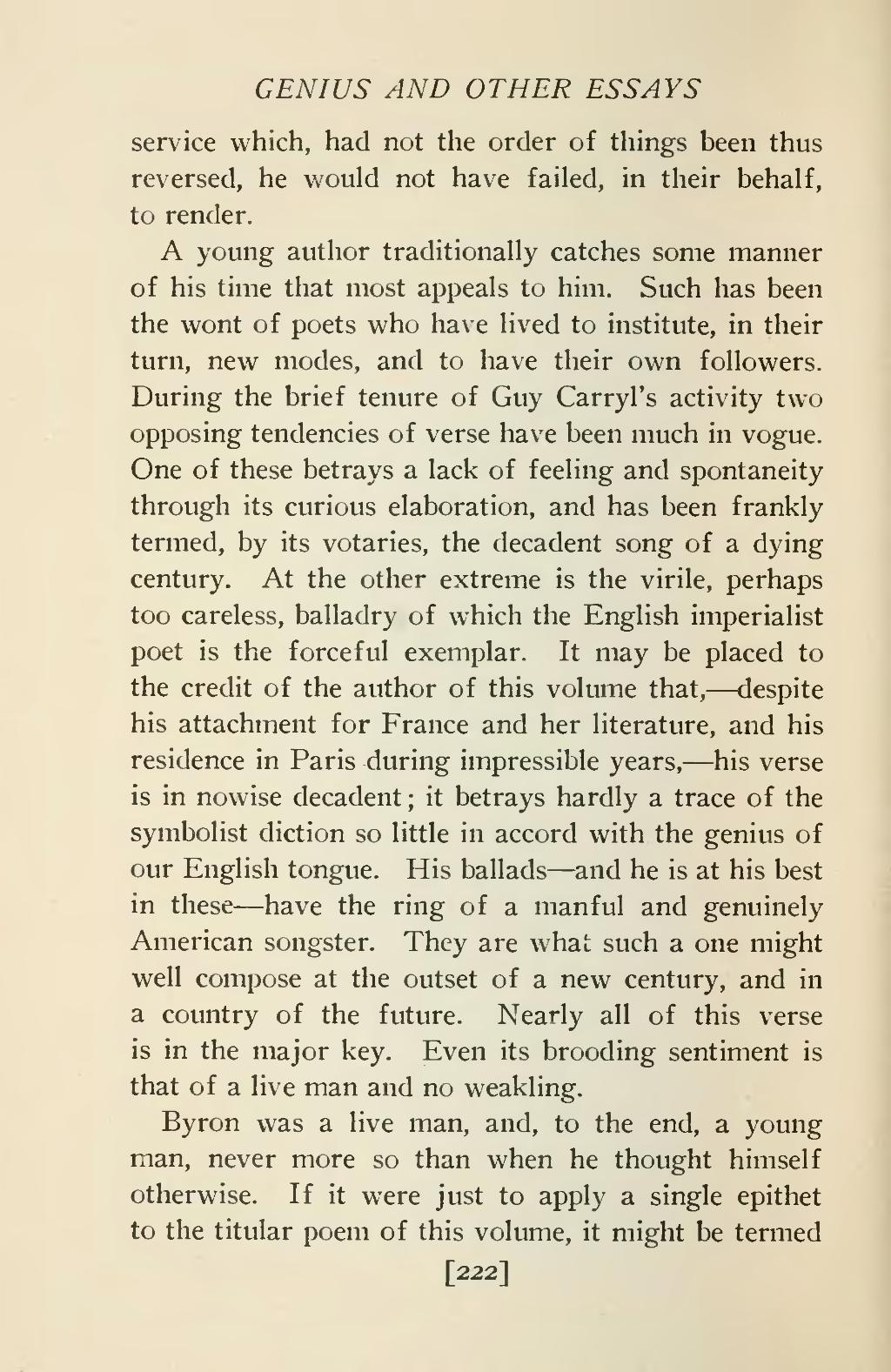GENIUS AND OTHER ESSAYS
service which, had not the order of things been thus reversed, he would not have failed, in their behalf, to render.
A young author traditionally catches some manner of his time that most appeals to him. Such has been the wont of poets who have lived to institute, in their turn, new modes, and to have their own followers. During the brief tenure of Guy Carryl's activity two opposing tendencies of verse have been much in vogue. One of these betrays a lack of feeling and spontaneity through its curious elaboration, and has been frankly termed, by its votaries, the decadent song of a dying century. At the other extreme is the virile, perhaps too careless, balladry of which the English imperialist poet is the forceful exemplar. It may be placed to the credit of the author of this volume that,—despite his attachment for France and her literature, and his residence in Paris during impressible years,—his verse is in nowise decadent; it betrays hardly a trace of the symbolist diction so little in accord with the genius of our English tongue. His ballads—and he is at his best in these—have the ring of a manful and genuinely American songster. They are what such a one might well compose at the outset of a new century, and in a country of the future. Nearly all of this verse is in the major key. Even its brooding sentiment is that of a live man and no weakling.
Byron was a live man, and, to the end, a young man, never more so than when he thought himself otherwise. If it were just to apply a single epithet to the titular poem of this volume, it might be termed
[222]
